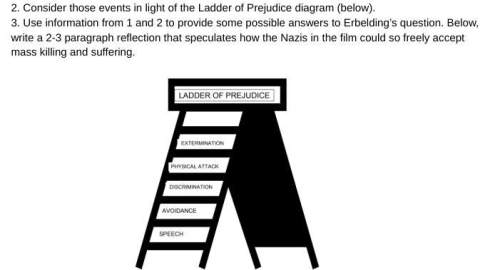Document 8b
…although obviously severely limited, the improvements for blacks [african america...

History, 19.08.2019 17:30 webbjalia04
Document 8b
…although obviously severely limited, the improvements for blacks [african americans] during
the depression were discernible [noticeable]. in may 1935, as the “second new deal” was
getting under way, president [franklin d.] roosevelt issued executive order 7046, banning
discrimination on projects of the new works progress administration. discrimination continued,
but the wpa proved to be a godsend for many blacks. in the later thirties [193os], between 15
and 20 percent of the people working for the agency were black, although blacks constituted less
than 10 percent of the national population. this, of course, was a reflection of how much worse
off blacks were than whites, but the wpa did enable many blacks to survive. more than that,
even minimum wpa wages of $12 a week were twice what many blacks had been earning
previously.
harold ickes’s public works administration provided to black tenants a more than fair share
of the public housing it built. the pwa went so far as to construct several integrated housing
projects. pwa construction payrolls also treated blacks fairly. some 31 percent of pwa wages in
1936 went to black workers. ickes first made use of a quota system requiring the hiring of blacks
in proportion to their numbers in the local work force. this precedent was followed again (at
least in theory) by the wartime fair employment practices commission and in the civil rights
legislation and court decisions of the 196os and 197os.…
source: robert mcelvaine, the great depression: america, 1929–1941, three rivers press
according to robert mcelvaine, what was one way the new deal affected african americans economically?

Answers: 1


Another question on History

History, 21.06.2019 22:00
Without george washingtons invention, what aspect of life most likely would be impacted
Answers: 2

History, 22.06.2019 08:00
How did mansa musa’s journey change people’s perceptions of mali
Answers: 3

History, 22.06.2019 12:30
Why did great britain finally send an ambassador to the united states in 1791? a) great britain forgave the colonies for their rebellion. b) the u.s. threatened special trade restrictions on british ships. c) great britain did not want the u.s. to become allies with france. d) the u.s. would seek a closer alliance with spain if great britain did not send an ambassador.
Answers: 3

You know the right answer?
Questions

Mathematics, 02.12.2020 22:40



Mathematics, 02.12.2020 22:40


Mathematics, 02.12.2020 22:40



Mathematics, 02.12.2020 22:40


Chemistry, 02.12.2020 22:40



Mathematics, 02.12.2020 22:40

Computers and Technology, 02.12.2020 22:40

Chemistry, 02.12.2020 22:40




English, 02.12.2020 22:40




